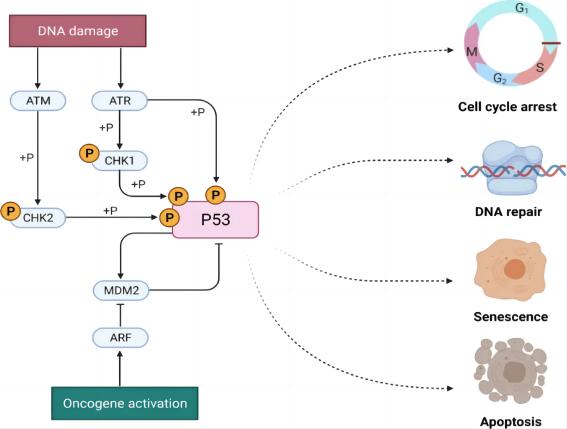
Creative Diagnostics, a leading manufacturer and supplier of antibodies, antigens and assay kits, has announced its extensive portfolio of P53 and TP53 antibodies and solutions to support researchers in the critical field of cancer research. This comprehensive collection of research tools will empower scientists to advance their understanding of P53 and TP53 and their role in cancer development and progression.
P53 is a potent tumor suppressor encoded by the TP53 gene on human chromosome 17. As a transcription factor, P53 coordinates the expression of target genes to promote cell cycle arrest, apoptosis, and DNA repair. In addition, P53 exerts antiproliferative effects through transcription-independent mechanisms.
Mutations in the TP53 gene reduce the tumor suppressor activity of the encoded P53 protein. They are present in approximately half of all human malignancies, including breast, colorectal, lung, liver, prostate, bladder and skin cancers. Cancer-associated TP53 gene mutations are primarily missense mutations, which result in the substitution of a single amino acid. Although hundreds of different P53 mutations have been documented, some are particularly common and are known as hotspot mutations, such as R175, G245, R248, R249, R273, and R282.
P53 is involved in a number of pathways that affect oncogenic biological processes, including cell proliferation, G2/M phase, and apoptosis. Under excessive oncogenic stress, activation of p53 induces senescence and cell cycle arrest, which is an important regulatory mechanism for tumor suppression. P53 tumor suppressor function may also act through recruitment or regulation of other oncogenes, for example, p53 directly binds to the promoter of ITIH5 in melanoma cells and promotes transcription of ITIH5, which inhibits proliferation and migration of melanoma cells.
Several studies have shown that transfection of cancer cells with plasmids expressing wild-type P53 induces apoptosis and/or growth arrest. To date, several clinical trials have been completed using viral and non-viral vectors to deliver the P53 gene either alone or in combination with other therapeutic agents.
Creative Diagnostics has developed a panel of high-quality materials to assist customers worldwide in their research into the functions, oncogenic pathways, and potential treatment of P53 and TP 53, including monoclonal antibodies, polyclonal antibodies, phospho-specific antibodies, mutation-specific antibodies and acetyl-specific antibodies.
These versatile antibodies offer a wide range of applications, targeting multiple species and validated for diverse research needs. Not only can they distinguish between wild type and mutant protein types, covering a wide range of mutation sites, but they can also detect post-translational modifications at different sites (including methylation, phosphorylation, and amidation). They are also available with a variety of labels that are compatible with different detection methods and exhibit high specificity and minimal batch-to-batch variation. This combination of broad applicability, precision, and cost effectiveness makes these antibodies a valuable tool for researchers.
Creative Diagnostics offers a wide range of quality P53 and TP53 antibodies to support customers’ research needs. For more information on the new antibodies, please visit https://www.creative-diagnostics.com/p53-and-tp53-critical-objective-in-cancer-research.htm.
About Creative Diagnostics
Creative Diagnostics is a leading manufacturer and supplier of antibodies, viral antigens, innovative diagnostic components, and critical assay reagents. In addition to providing contract R&D and biologic manufacturing services for diagnostic manufacturers along with GMP biologics manufacturing for the biopharmaceutical market, the company aims to continue to act as a trusted source for all researchers’ assay development and manufacturing needs.


